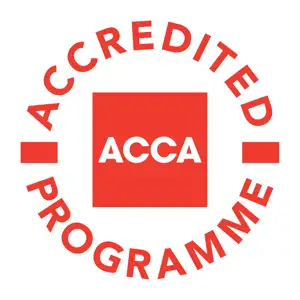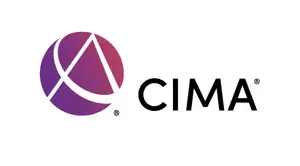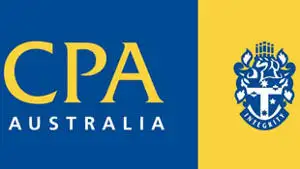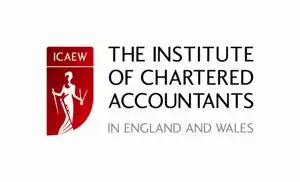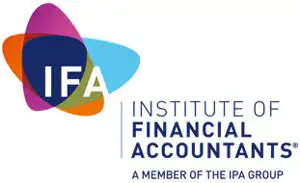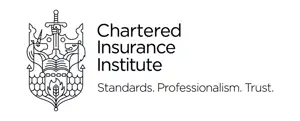Block 1: Introduction to Financial Accounting
Block 2: Introduction to Management Accounting
Block 3: Business Analysis Techniques
Block 4: Regulatory and Ethical Decision Making
Year 2
Block 1: International Financial Reporting and Taxation
Block 2: Decision Management
Block 3: Corporate Finance
Block 4: Digital Environment
Block 1: Advanced Financial Reporting and Taxation
Block 2: Strategic Decision Management
Block 3: Advanced Corporate Finance
Block 4: Choose one from the below:
Audit and Forensic Accounting
Contemporary issues in Accounting
Note: All modules are indicative and based on the current academic session. Course information is correct at the time of publication and is subject to review. Exact modules may, therefore, vary for your intake in order to keep content current. If there are changes to your course we will, where reasonable, take steps to inform you as appropriate.
Detailed Module Descriptions
Year 1
Block 1: Introduction to Financial Accounting
A technically oriented module intended to develop a high level of skill utilising commonly and regularly used financial accounting procedures and techniques. Students will have the opportunity to develop knowledge and understanding of the methods and techniques used by financial accountants to record and present financial information to interested parties. Students will study the principles of double entry book-keeping including year-end adjustments and will learn how to prepare final accounts for sole traders, partnerships and limited companies. They will also be introduced to the skills required to analyse and interpret financial statements.
Block 2: Introduction to Management Accounting
A highly technically orientated module intended to develop a high level of skill utilising commonly and regularly used Management Accounting procedures and techniques. Outline content will include: Management accounting fundamentals such as cost behaviour and cost classification. Accounting for materials, labour and overheads. Different costing methods such as process costing and job costing. Budgeting and forecasting theory and practical application. Basic variance analysis - calculations and interpretation. Introductory level performance measurement.
Block 3: Business Analysis Techniques
This module introduces the ideas of statistics and financial mathematics within a business and organisational context. The module aims to provide students with the basic quantitative techniques to be able to summarise and present financial data in a meaningful way. To assist with this appropriate computer software will be used. In addition, the module aims to enable students to apply financial mathematical techniques to simple, but real-life scenarios. You will also gain skills in business communication and analysis in private and public sector organisations. The ethos of responsible design and the relevant United Nations Sustainable Development Goals (SDGS) will be reflected in this module.
Block 4: Regulatory and Ethical Decision Making
This module will help to facilitate an understanding of the principle legal issues relevant to a person studying accounting and finance. The module also introduces the subject of Ethics and Ethical decision making for students working in roles within accounting or finance, including the principles of ethical decision-making theories and models for developing moral frameworks.
Year 2
Block 1: International Financial Reporting and Taxation
This is a highly technically oriented module with two main sections: Financial Reporting and Taxation.
In the Financial Reporting section, the module is looking at various sophisticated accounting techniques, procedures and principles that result in the production of accounting reports for external use. The module critically evaluates the impact of the International Financial Reporting Standards and International public sector Accounting Standards upon external reports.
The Taxation section of this module will look at the taxation legislation relevant to unincorporated businesses and employees, including income tax, national insurance and capital gains tax. It will include a mixture of policy and practice relating to the current tax legislation. It will entail carrying out numerical computations, evaluating and using written skills to communicate with a client.
Block 2: Decision Management
This is a technically orientated module that looks at the application of management accounting techniques to quantitative and qualitative information for decision-making, planning and control in a modern business environment.
Block 3: Corporate Finance
Finance is the branch of economic science concerned with the acquisition of money, the allocation and management of money resources, and the maximisation of wealth via optimum investment decision-making. Therefore, by definition, financial management and financial decision making is crucial for all companies as the successful choice of money resources and implementation of investment decisions will secure survival and expansion of the business entity. This module introduces students to some of the main principles of corporate financial decision-making and their impact in real-world financial decisions.
Block 4: Digital Environment
This module explores the nature of technology from accounting and finance perspectives. We will discuss the digital transformation of the finance function and introduce the appropriate technologies allowing students to understand the digital accounting and finance environment. We will explain the ecosystems of organisations and analyse the modern business models in digital ecosystems. The module will also examine the impact of digital transformation on different aspects of management accounting, taxation and other regulatory environment of finance reporting.
Year 3
Block 1: Advanced Financial Reporting and Taxation
This is a highly technically-oriented module with two main sections: Financial Reporting and Taxation. In the Financial Reporting section, the module focuses on examination of and practice of the mechanics of accounting for groups of companies and Whole of Government Accounts together with the study of advanced-level financial reporting standards and techniques and the development of the financial reporting framework and the application of IPSAS to governments.
The Taxation section of this module will consider the taxation legislation relevant to individuals, business and public sector organisations. It will include a mixture of policy (including post crises recovery) and practice relating to the current legislation. It will entail writing reports, carrying out numerical computations and participating in group discussions. Students will be required to analyse and evaluate the legislation.
Block 2: Strategic Decision Management
This is an advanced module that will enable students to review, consolidate, extend and apply their knowledge and understanding of management accounting techniques with an emphasis on critical appraisal.
Block 3: Advanced Corporate Finance
This module focuses on those contexts, theories and practices which are important to financial managers within firms. This module requires numeracy skills, an appropriate use of statistics, communication and technology skills.
Block 4: Choose one of
This module focuses on those contexts, theories and practices which are important to financial managers within firms. This module requires numeracy skills, an appropriate use of statistics, communication and technology skills.
- Audit and Forensic Accounting
This module considers two areas of assurance, audit and forensic accounting. The audit section of the module examines the role and processes of the auditor and commonly used audit techniques. The module will examine both the technical practices and the basic theories involved in the audit process as well as providing a critical overview of auditing, including supreme auditing institutions. Including the examination of Supreme Audit Institutions globally.
The forensic accounting section of the module is designed to examine the areas of accounting fraud, cyber-crime and legal valuations within a context of litigation where the accountant acts as an expert witness or primary investigator liaising closely with lawyers and other legal advisors.
OR
- Contemporary Issues in Accounting
This module will discuss the contemporary issues in the accounting field and dynamic business environment for students who want to be accountants in future, covering the day-to-day changes in accounting and audit standards, and the issues that the professionals are facing.
